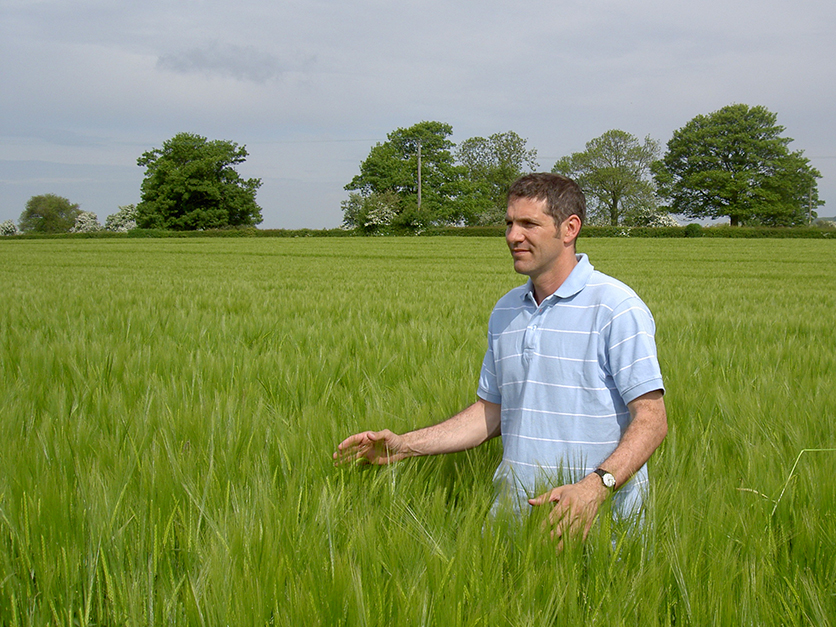Trade talks between the United Kingdom and the European Union are “deadlocked,” according to the Associated Press. Difficult negotiations always involve brinkmanship, so it’s hard to know exactly what to make of despairing stories in the media. Economic and political turmoil do not make for a great backdrop and clear progress. So it now appears probable that we won’t have a final result before January, when the UK is due to complete its economic break with the EU.
Once outside the EU, we have a great opportunity to take a free-trade agreement with the United States forward, based on science and reality. Trade diplomats began formal conversations earlier this year. Both Prime Minister Boris Johnson and President Trump say that they want a pact.
“I think we’ll make a fantastic and big trade deal with the UK,” said Trump last year. “We should do much more business than we’re doing.” We’re already doing a lot of business, exchanging more than $260 billion in goods and services annually. More than a million Americans work for British companies and more than a million Brits work for American companies, reports the U.S. Chamber of Commerce.
As a farmer in the UK, I keep a close watch on the agricultural sector: U.S. exports to the UK add up to about $2 billion, and UK exports to the United States rise to more than $800 million. That’s just a small fraction of our total two-way trade, but it makes an important difference to those of us in the industry.
It’s also a point of contention. Agricultural trade is always difficult in any trade deal. After three rounds of negotiations, it’s now clear that our countries remain divided on food production processes that could be easily resolved.
We always knew this would be a challenge and for the UK, it’s a new area. Trade negotiation, once left to the EU, is now a unilateral process and the WTO rules will form the backdrop. The United States has insisted for years that the UK follow science-based rules. One difficult example would be acceptance of American chickens washed in chlorine. This practice has received a lot of sensational media coverage in the UK. In reality, no exporter uses the process and yet it dominates the headlines. Clear labeling and traceability protocols would solve the problem, inform the consumer, and let them make the choice.
The EU nevertheless continues to object to the practice, claiming that it merely makes up for low standards elsewhere in the food chain, which would be fine if it were not for EU hypocrisy and double standards applied to several areas of food production and imports. Even the European Food Safety Authority says chlorine treatment is “unlikely to pose an immediate or acute health risk for consumers.”
No importer on either side will compromise food safety for price advantage. On both sides there are differing practices, but we all know that exports are usually centered on best practices and that concept needs to be promoted. A new trade deal should be seen as an opportunity to take the EU politics out of negotiations and center on science and labeling.
As we move the politics and Brexit process forward, we should seize the opportunity to embrace innovative genetics, ag inputs and other technologies. The UK has a perfect chance to show the EU how the double standards and decimated R&D could be reversed when agricultural science is embraced. Investment should be attracted into the UK to help solve sustainability and resilience issues for farming and provide an excellent example of problems that Brexit can change in a meaningful way.
For the UK, a deal with the United States is a special opportunity to put our regulatory house in order—and to embrace the science-based rules that should have governed agriculture production and food safety all along. We are now clearly in the territory of words needed to match action and instead of the opaque politics of the EU and Brussels, we can now firmly pin down responsibility to individuals – no more excuses.
A trade agreement with the United States is a complex negotiation, involving a wide range of goods and services, such as pharmaceuticals, digital commerce, and corporate subsidies. Even in the best of times, trade talks can drag on—and a risk of Brexit always has been that fact. You only have to look at Barnier’s most recent press statements noting lack of progress. The UK does have a major challenge. We lack the native expertise to conduct trade diplomacy at a high level and fast pace, so we are on a steep learning curve without the experience that many of those we negotiate with have.
Because of this, we should be patient about progress—but also careful to avoid the deadlock that apparently now obstructs negotiations with the EU.
So, we need to keep things moving forward with the United States: We need to avoid playing on misplaced fear factors and embrace the opportunity that science-based reality and trade provides. We need to be clear on informing consumers and really clear in these difficult times that this is a vital economic opportunity that must not be missed.
Paul Temple grows cereals, vegetables along with grazing beef cattle on a mixed arable farm in Yorkshire, United Kingdom. Involved in the UK FSE trials for 3 years, Paul is a member of the Global Farmer Network. www.globalfarmernetwork.org

